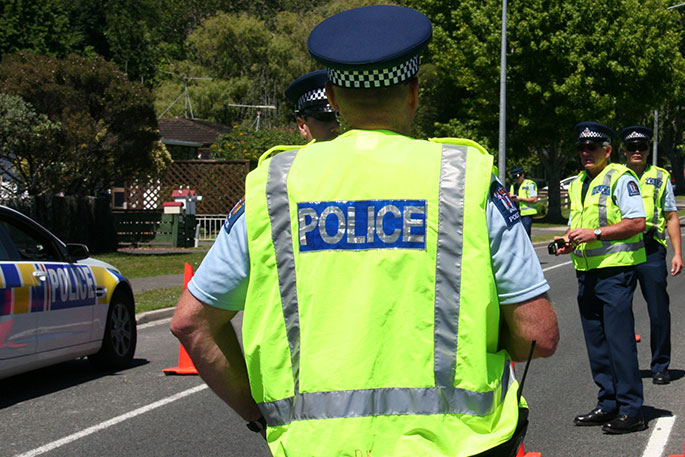Random roadside drug testing will come into force from next year, to deter drug-impaired driving, following the passing of the Land Transport (Drug Driving) Amendment legislation.
"Our Government is committed to reducing the serious harm that comes from driving under the influence of drugs. In both 2020 and 2019, over 100 people were killed in crashes where a driver was found to have had drugs in their system," says Transport Minister Michael Wood.
"This legislation directly addresses these preventable crashes, and will lead to safer roads for all.
'Improving safety and saving lives on our roads is at the heart of this legislation. Drug-impaired driving accounts for nearly a third of all road deaths.
"These are preventable tragedies – improving our approach for detecting and deterring drug driving will go a long way towards minimising the devastating heartbreak for whānau across New Zealand.
'This is just one action we are taking as a part of our Government's Road to Zero strategy to save the lives of people on our roads. We want to see zero road deaths and serious injuries by 2050, and this legislation is a step in the right direction."
Wood says the legislation has been carefully developed based on the best scientific evidence available.
"We thank the expert panel led by Dr Helen Poulsen who provided technical advice on the thresholds for both infringement and criminal offences.
"We also acknowledge that this is a new area of enforcement activity and it is important to monitor its rollout carefully. As such, we agreed during the parliamentary process to a formal review of the drug driving regime after three years of operation."
The rollout of roadside testing is set to begin in early 2023, and will be similar to the approach to alcohol breath testing.
Over the next 12 months, Te Manatū Waka Ministry of Transport, New Zealand Police, and Waka Kotahi will be working together to implement the new roadside drug testing regime.
"It is time we stopped accepting that a certain amount of death and serious injury is just the price we all pay for moving around," says Police Minister Poto Williams.
"By targeting this high-risk behaviour, we can reduce the trauma caused by drug-impaired driving. Police have the important job of keeping Kiwis safe on our roads and this legislation provides them with better tools for drug driving enforcement."
Williams says tandom roadside oral fluid testing can detect the most common impairing drugs used by New Zealand drivers, including THC (the psycho-active ingredient in cannabis), methamphetamine, benzodiazepines (sedatives), MDMA (ecstasy), opioids, and cocaine.
The regime also establishes new blood criminal limits and infringement thresholds for 25 impairing drugs.
"We are taking an important step to stop unnecessary road trauma. This legislation complements other Road to Zero action, which includes investing $1.2 billion for road policing over the next three years.
"Driving under the influence of drugs is a major safety issue on our roads, and this legislation shows that our Government is doing something about it."
What does the new legislation entail:
- The Bill gives Police the power to conduct random oral fluid testing at the roadside to detect the most prevalent impairing illicit and prescription drugs.
- The Bill extends the existing medical defence in the Land Transport Act to include the new drug driving regime. The Bill also creates a new medical defence pathway for infringements resulting from positive oral fluid test results that do not require the driver to undergo a blood test.
- The regime also sets blood infringement thresholds and criminal limits for 25 of the most common drugs that impair drivers as recommended by an Independent Expert Panel. These drugs are:
-
- Alprazlam
- Amphetamine
- Buprenrphine
- Clnazepam
- Ccaine
- Cdeine
- Diazepam
- Dihydrcodeine
- Fentanyl
- GHB
- Ketamine
- Lrazepam
- MDMA
- Methadne
- Methamphetamine
- Midazlam
- Mrphine
- Nitrazepam
- Oxazepam
- Oxycdone
- Temazepam
- THC (cannabis)
- Tramadl
- Triazlam
- Zpiclone
- Alprazlam



3 comments
pass
Posted on 09-03-2022 20:16 | By dumbkof2
they can pass a bill giving themselves a raise so why cant they pass a bill almost immediately to bring this in
More of the same
Posted on 10-03-2022 12:04 | By Slim Shady
Just put it on the tab Officer. It will be just like the speed tickets, unfit vehicles, unlicensed drivers, unregistered cars. A ticket thrown in the back seat, never to be paid, and carry on. Whilst ever we have a softly softly justice system all this is is just point scoring. Nothing to do with safety.
Committed to reducing harm
Posted on 10-03-2022 13:54 | By an_alias
Really ? Is that why you wanted to legalise cannabis as that will somehow reduce the harm ?
Leave a Comment
You must be logged in to make a comment.